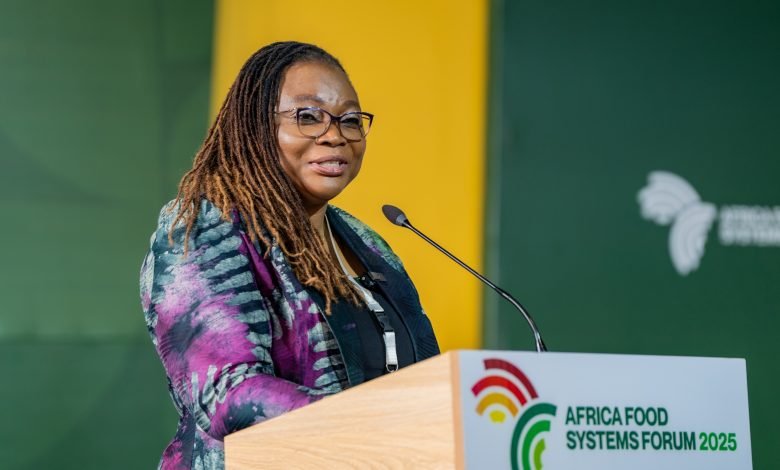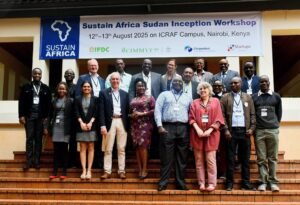By Murimi Gitari, September 10, 2025, At the Africa Food Systems Forum (AFSF2025), Heifer International issued a powerful call to action: governments, donors, and development partners must deepen their commitment to local partnerships to unlock Africa’s agricultural potential.
With nearly two-thirds of Africa’s workforce employed in agriculture, the sector remains underfunded—receiving less than 4% of commercial lending. The African Development Bank estimates an $80 billion annual financing gap, leaving smallholder farmers and agri-SMEs—who produce up to 70% of the continent’s food—struggling with limited credit access, weak infrastructure, and high borrowing costs.
“The future of African agriculture will be built on strong partnerships and funding that helps innovations move from ideas to scale,” said Surita Sandosham, President and CEO of Heifer International. “Philanthropic support is essential, and by working alongside governments, cooperatives, and the private sector, we can ensure that these funds go further in strengthening local food systems.”
Heifer showcased its work in several countries to demonstrate how this approach is already creating an impact. The AYuTe NextGen (Agriculture, Youth, and Technology Next Generation) is a Heifer International initiative that puts young people and technology at the heart of Africa’s agricultural future. It identifies, supports, and scales agri-tech innovations that address the key challenges faced by smallholder farmers. In Nigeria, its partnership with Hello Tractor has given more than 20,000 farmers access to affordable mechanisation services, helping them plant and harvest on time.
In Uganda, youth-led start-ups supported through Heifer’s AYuTe NextGen initiative have expanded mobile-based livestock health and crop advisory services, attracting private investment in the process. In Kenya and Rwanda, partnerships with dairy cooperatives have reduced milk spoilage by up to 30 per cent, improving farmer incomes and making the sector more attractive to buyers and processors.
Adesuwa Ifedi, Senior Vice President for Africa Programs, said these results show what is possible when local actors lead the way. “Farmers must be treated as business partners, young innovators need opportunities to prove their models, and finance must be structured in ways that share risk fairly. Above all, partnerships rooted in local realities create the trust and resilience needed for long-term growth,” she said.
This approach also responds to the barriers faced by women and young people, who make up a large share of Africa’s farmers and food entrepreneurs. Africa’s median age is 19, and women comprise almost half of the agricultural workforce. Yet both groups often struggle to access land, finance, and markets. By linking youth-led enterprises and women farmers to cooperatives, and by designing inclusive partnerships, Heifer is supporting national governments to ensure that agricultural development benefits those who are too often left behind.
Regional strategies such as the Comprehensive Africa Agriculture Development Programme (CAADP) call for more than $100 billion in agrifood investment, with at least 30 per cent of opportunities going to women and youth. Heifer’s work demonstrates how these policy commitments can be translated into tangible, community-led action.
Speaking on behalf of recent AYuTe NextGen winners, Carolyne Mwangi, CEO of Kenya-based Kimplanter Seedlings and Nurseries, emphasised the importance of partnerships: “Across Africa, young entrepreneurs are delivering solutions, from mechanisation services to cold-chain logistics. What they need are partners who understand farming realities and who can connect them to markets. This is how resilience and growth are built.”
Heifer concluded that lasting change in African agriculture requires moving beyond fragmented, short-term interventions toward systems that bring farmers, governments, investors and the development sector together. With stronger local partnerships and better-designed support, smallholder farmers can increase their incomes, investors can find viable opportunities, and countries can strengthen food security as their populations grow.







